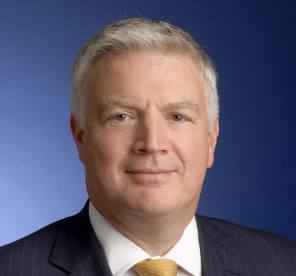

More and more pre-retirees shun financial advice because of the perceived high cost involved, according to research by Returement Advantage.
Retirement Advantage found people aged 50 plus prefer using the government’s free at retirement service Pension Wise, or the internet, to advice, despite a marked improvement in trust in the industry.
The firm’s latest poll of 1,003 UK adults aged 50 plus found fewer than one in three (31 per cent) people planned to ever consult a professional financial adviser for information on their retirement options, down from two in five (42 per cent) last year.
Instead, more people seem to be flocking to Pension Wise, which for the first time came out top in popular sources of information, with 46 per cent saying they planned to use the service.
The use of the internet saw a sharp decline but was still the second most favoured guidance option for the over-50s (36 per cent, down from 44 per cent in 2017), while one in three said they would get information from their pension provider.
However, trust in advisers did not seem to be the problem, as a mere 28 per cent said a lack of trust was holding them back (compared with 38 per cent in 2017).
Instead, the flight from advice looks to have been driven mainly by concerns over cost, which was the most common reason given for not consulting an adviser for the last two years at 42 per cent.
Andrew Tully, pensions technical director at Retirement Advantage, said consumers should be mindful that there was “no substitute for the benefits of professional advice”.
He said: “The increase in trust for professional financial advisers is good news, but it is concerning that people appear to be turning their back on advice because of the promotion of Pension Wise.
“Hopefully people will view Pension Wise as a first step towards seeking full advice.”
The research found the promotion of Pension Wise, such as in television adverts, was indeed having an impact, with 17 per cent of those aged 50 plus saying they don’t plan to consult an adviser because they believe the government is recommending using Pension Wise (up from 12 per cent in 2017).
Retirement Advantage polled 1,003 UK adults aged 50 plus who are not retired and have a defined contribution or individual pension in place, in March this year.
Mr Tully said there was a sense people felt more confident in being able to make complex decisions on their own.
But advice capacity was also an issue, as there are about 25,000 registered advisers in the UK, compared with about 400,000 people who reach retirement age each year.
He said: “Developing streamlined advice models that can engage and cater for the many people either unwilling or unable to pay for advice will be vital.”
Ricky Chan, director at IFS Wealth & Pensions, said he has seen more and more enquiries from those aged 50-plus seeking retirement advice, many for the first-time.
But he said the industry should do more to promote the real value of advice.
He said: "I can understand if cost may be an issue for those with modest pension funds as it is not cost-effective for both parties to do business. So seeing Pension Wise may be sufficient for them.
"Perhaps the issue for others with larger pension funds is that they do not understand the value a good financial planner adds.
"Because if one knew with certainty of the benefits - that they would have a clear picture of their financial future, peace of mind, improvements in their tax efficiency, higher potential retirement incomes, reduced risk of unsuitable investments and unsustainable income withdrawals, a professional acting in their best interests, etc - then I don’t believe the average cost charged would be an issue."
carmen.reichman@ft.com



